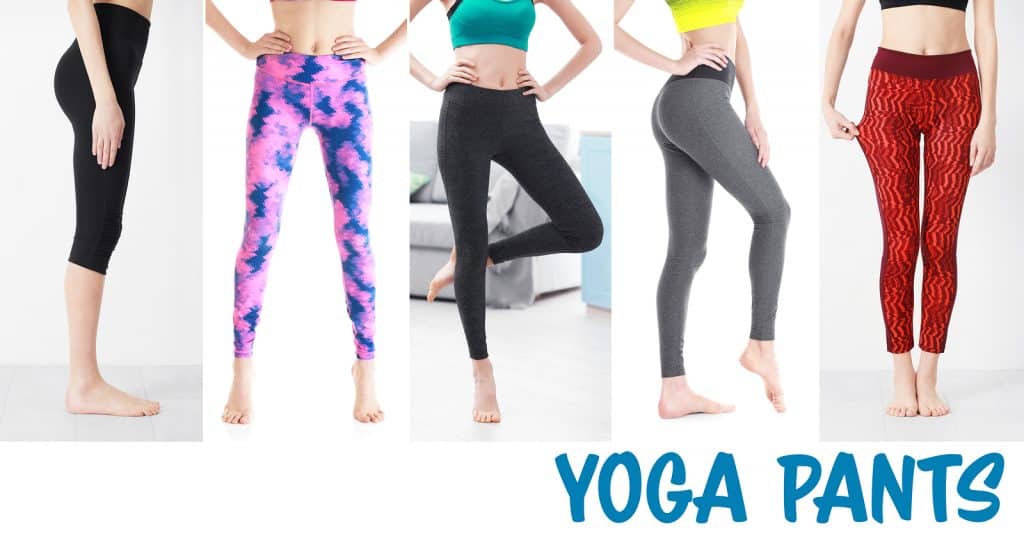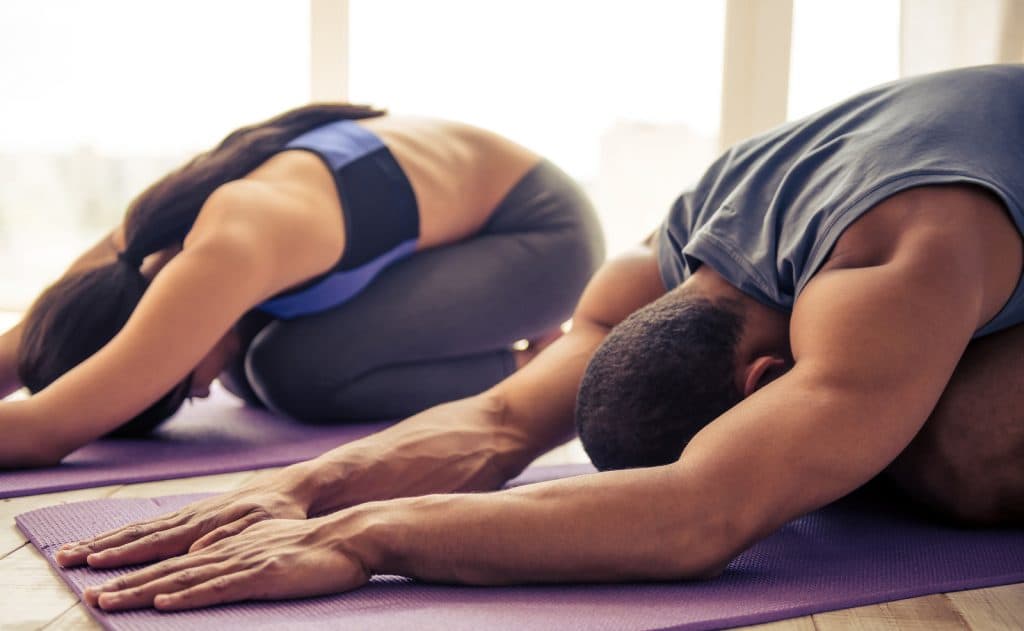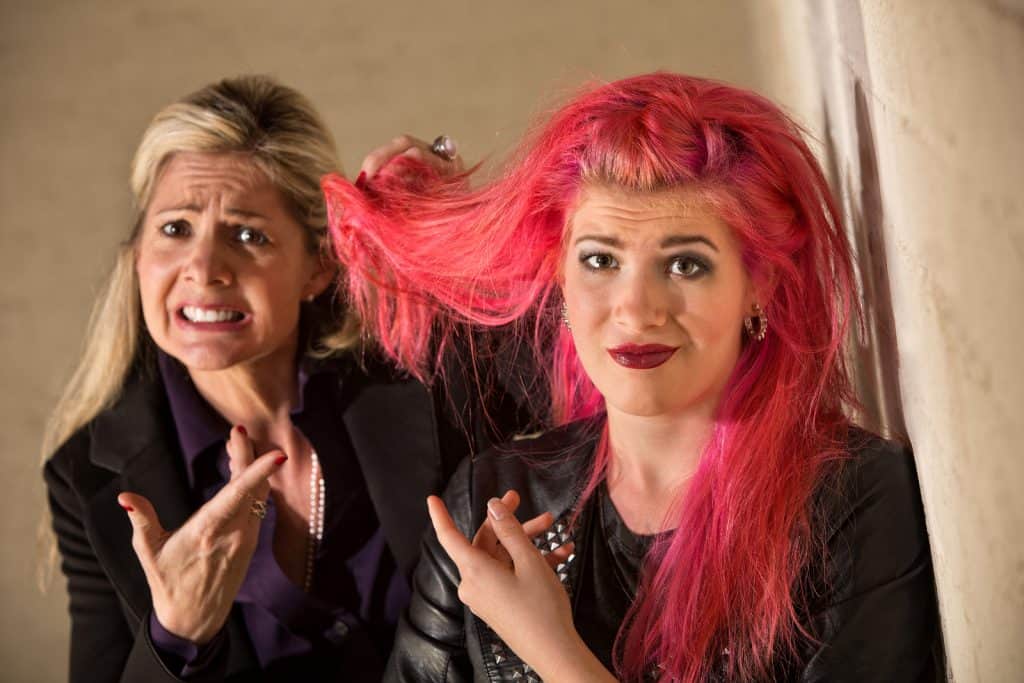Yoga pants are in the news again, and me and my stretchy waistband have had enough.
Maybe you read that title and thought, wow, this lady is a little too into her spandex workout wear. Yes. Yes I am. I love yoga pants. I cherish yoga pants. I wear them at the gym, at home, at work, and you know what, I’m wearing them right now.
Over the years, I’ve heard yoga pants be the victim of some seriously catty conversation, and me and my favorite pants have just about had it up to here (right to the top of my stretchy, super comfortable, waistband).
First there was the complaint that yoga pants were too revealing. Then there was the whole “you can’t wear those on airplanes” issue, and recently the New York Times article “Why Yoga Pants Are Bad For Women” complained about these pants taking away from the ideal exercising experience by making sweatpants-wearing ladies feel bad about their clothing choice.
When I sat down to read that NYT article, I was expecting it to be something else. From the title, I thought maybe it would be a piece on the importance of warm, circulation-supporting clothes at the gym, or perhaps a thoughtful and fresh perspective on choosing to go against the grain with fashion.
I love yoga pants and I wear them all the time, but I’m always up to read about a different perspective. I can always stand to learn something and I’m not opposed to new ideas. Heck, my mom was able to talk me out of my overalls-every-day phase. I’m convincible.
Stop shaming women for what we wear.

But instead of the opinion piece I was hoping for, I got a shaming article on why my trendy tush is wearing yoga pants to be sexy and how I’m making other women feel bad at the gym.
Apparently, not only are my yoga pants a symbol of my “come and get it” intentions but I’m making everyone around me uncomfortable with either my too-sexy body, or my fat, dimply ass. Plus, I’m peer-pressuring other ladies to throw away their wonderful sweatpants and conform to my spandex ways.
Unfortunately, our society has a way of telling women how they should feel and what they should do. (See: reproductive rights.) The media and individuals alike have a habit of getting all up in women’s business, pointing out things that we’re doing that they have a problem with, and telling us we need to change.
Reading that NYT article, I found myself frustrated with another voice trying to shame women into acting, or in this case, dressing, a certain way. I found myself shaking my head and thinking “et tu?”
Maybe I’m a little bit defensive and perhaps I’m taking this a little too seriously, but I love my pants. And not just yoga pants, any pants.
It’s normal for women to wear them now, but women in pants used to be downright scandalous. In the 19th century, women wanted to move away from bulky dresses and into more convenient, comfortable clothing, but many Victorians said women shouldn’t wear pants at all, claiming they were indecent and inappropriate. When women started wearing them anyway, it meant a huge change.
Pants-wearing ladies could move more freely, participate in sports more easily, and work more physical jobs. But perhaps the most important win was that women were controlling what they wore. It wasn’t just about convenience, it was about women having the choice to wear what they wanted.

And now, in 2018, I’ve had enough of all this body and clothing shaming. I see the same old trick society has been using for years: if I wear too much I’m a prude, if I wear too little I’m a slut. If I’m skinny I’m just trying to show off, and if I’m fat I’m making everyone uncomfortable with my thunder thighs. And now this NYT article is telling us that, on top of all that, yoga pants are making the author feel out of place with her own clothing choices, so we should all stick to sweatpants.
Does that author like sushi? Because she just got a major eye roll.
For me personally, I don’t like sweatpants. They’re too hot and bulky. I prefer yoga pants.
Yoga pants are comfortable and functional. I can get them for really cheap at Target, they can be dressed up or down, they give me a full range of motion, and they’re easy to wash.
But functionality is important to me. I’m a grad student with four jobs and on top of that I’m planning a wedding. I’m exhausted all the time and if I can get a piece of clothing that I can roll out of bed in, slip a dress over to go to work (yoga pants double as thick leggings in my household), and then wear to the gym at night, I’m sold.
Yoga pants are versatile, comfortable, and they help me get things done without having to change outfits everywhere I go.
And sure, the author of the NYT piece is right. Some women aren’t wearing yoga pants for functionality or comfort. Many are picking up those cute Lululemons pants because they’re fashionable and because they make everyone’s butt look better.
And I say: who cares? If a nice pair of workout pants helps you get to the gym, great. If the pants are flattering to your tush, it’s all the better.
Thinking about my yoga pants reminds me of how grateful I am. Not just for the fact that the clothing gods smiled down on me the day I first found these stretchy miracles, but because I know that women in past generations didn’t get to go to school like I am, they didn’t get to work the jobs I get to work, they didn’t get to make the choices I get to make for myself.
To me, a woman choosing to wear what she wants, to choose to show off her body or wear clothing that allow her to go to class, and work, and the gym, is feminist, forward-thinking, and incredible.
I’m going to wear my yoga pants, and I don’t care who likes it.
You can learn more about health and wellness from our love gurus and relationship experts if you join LOVE TV here.



